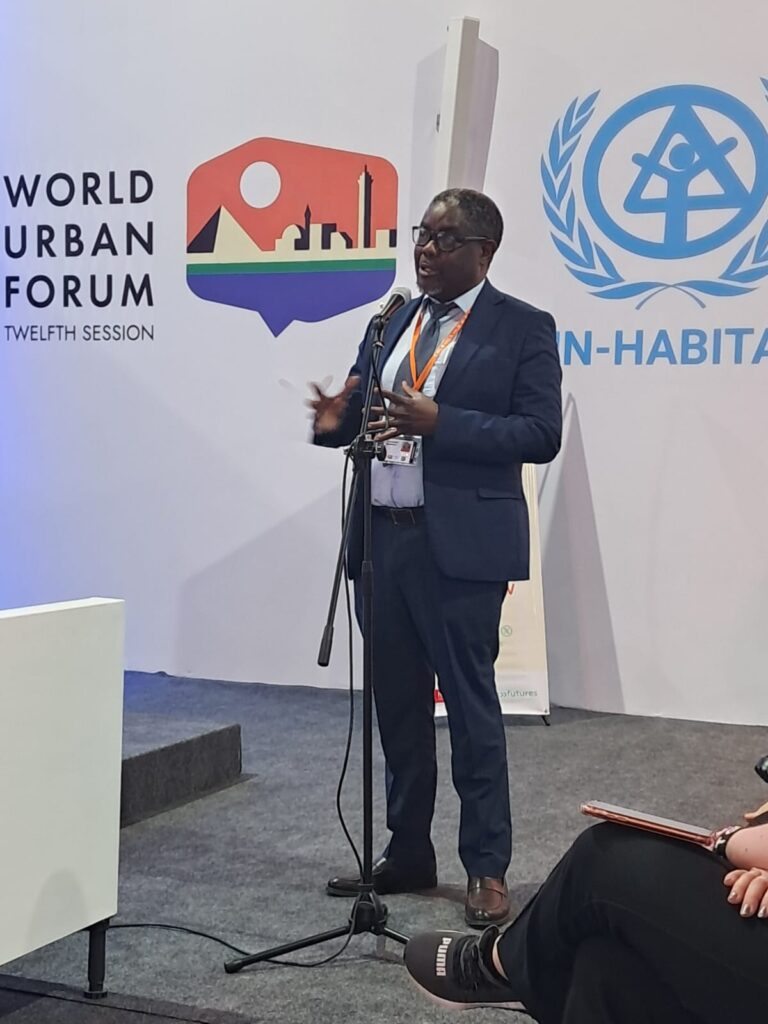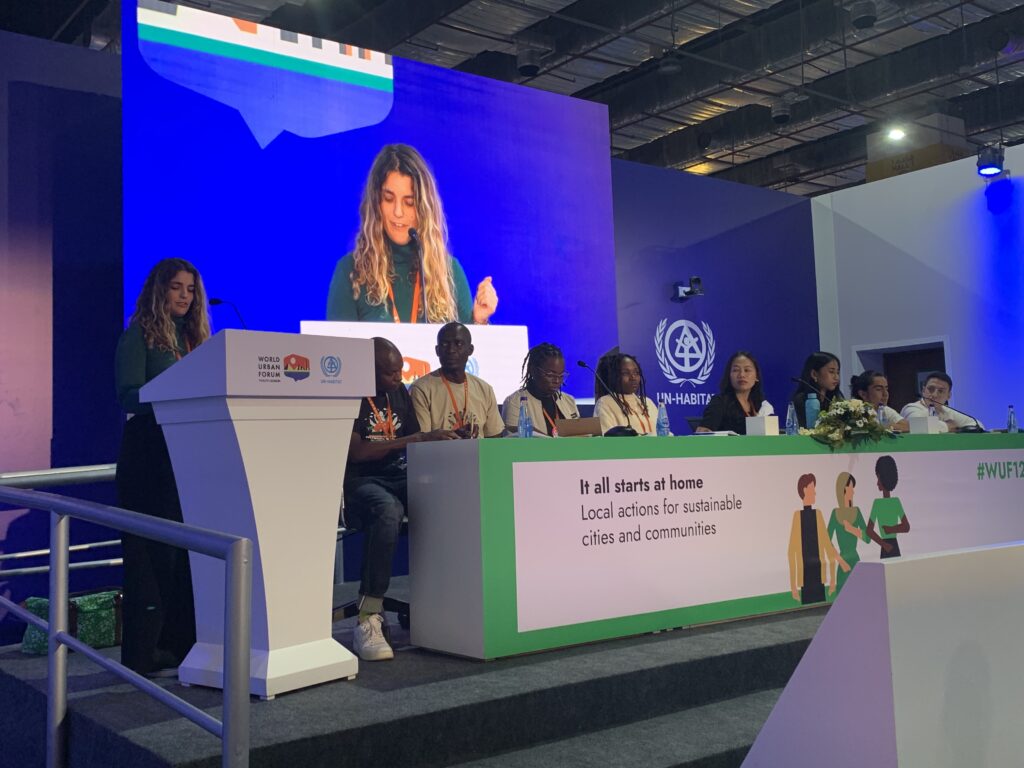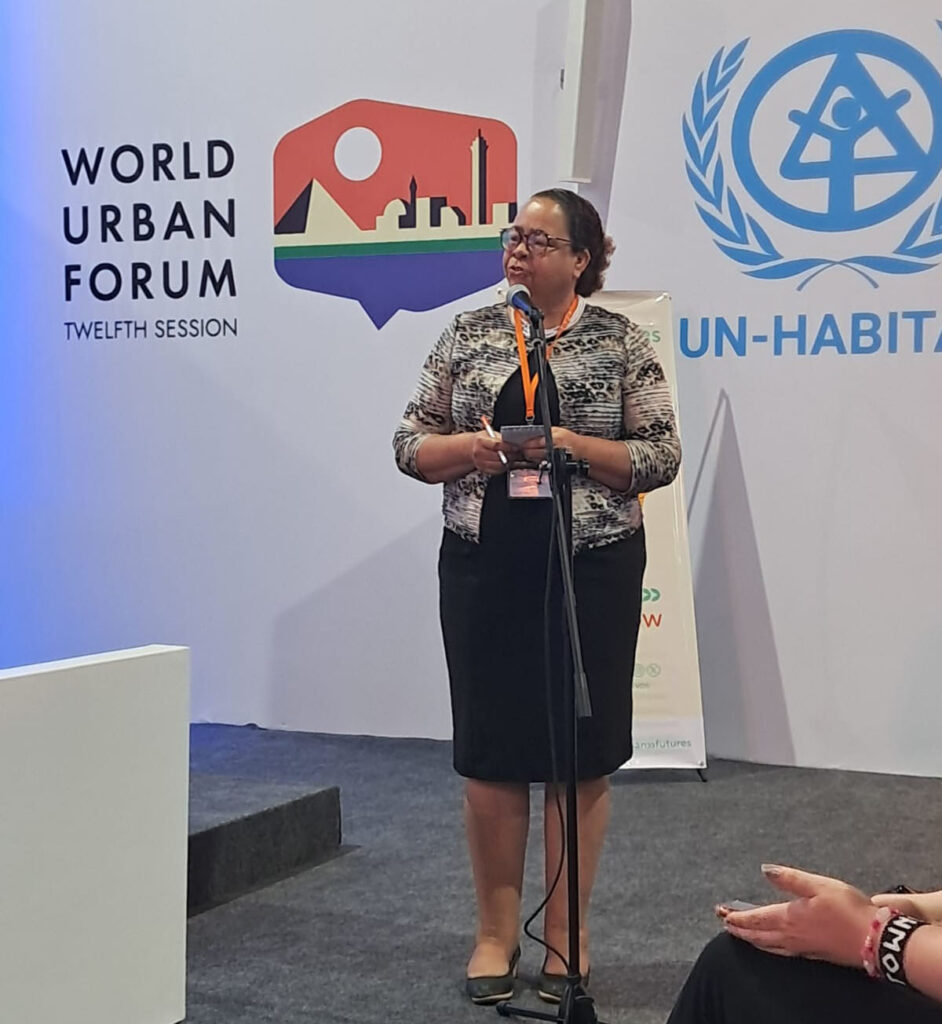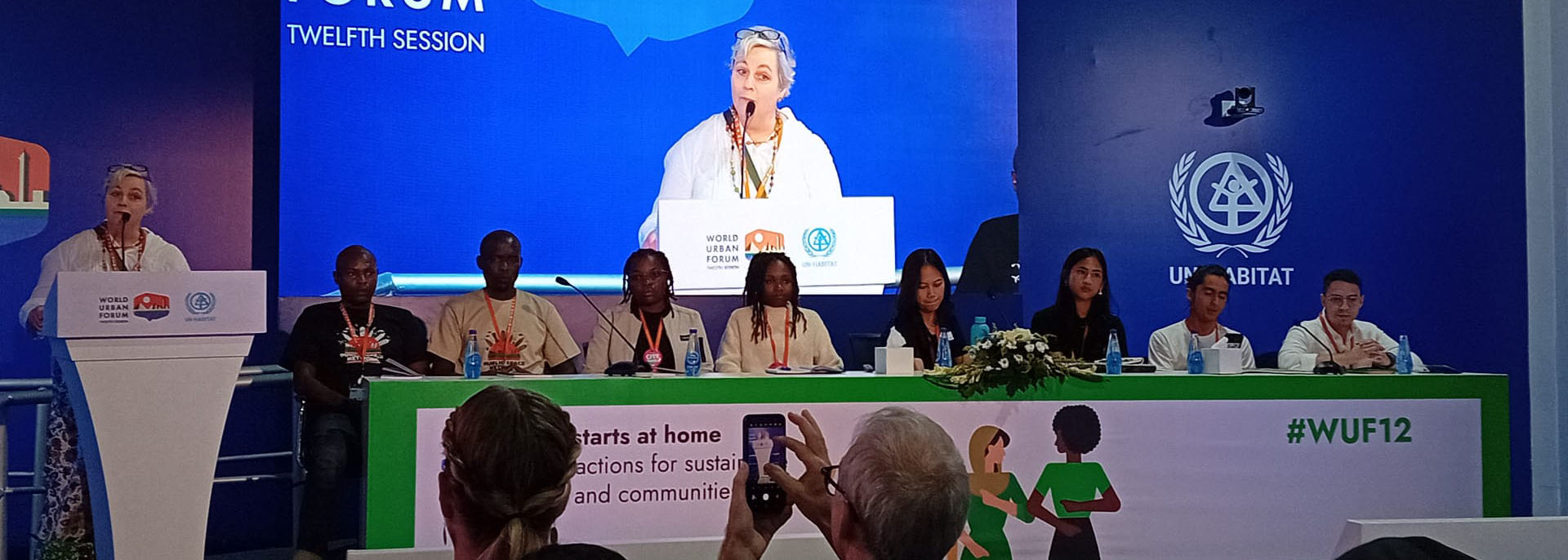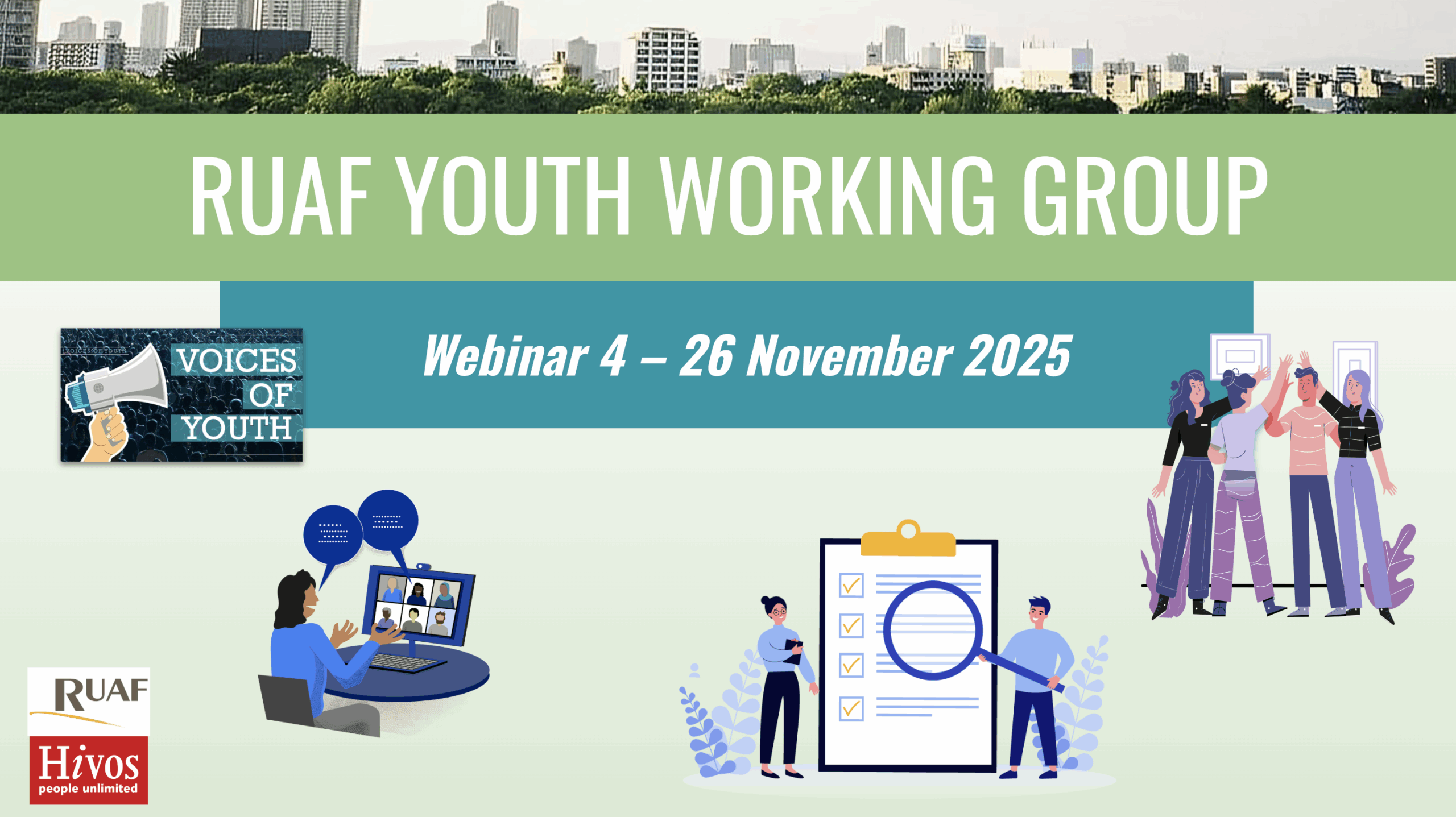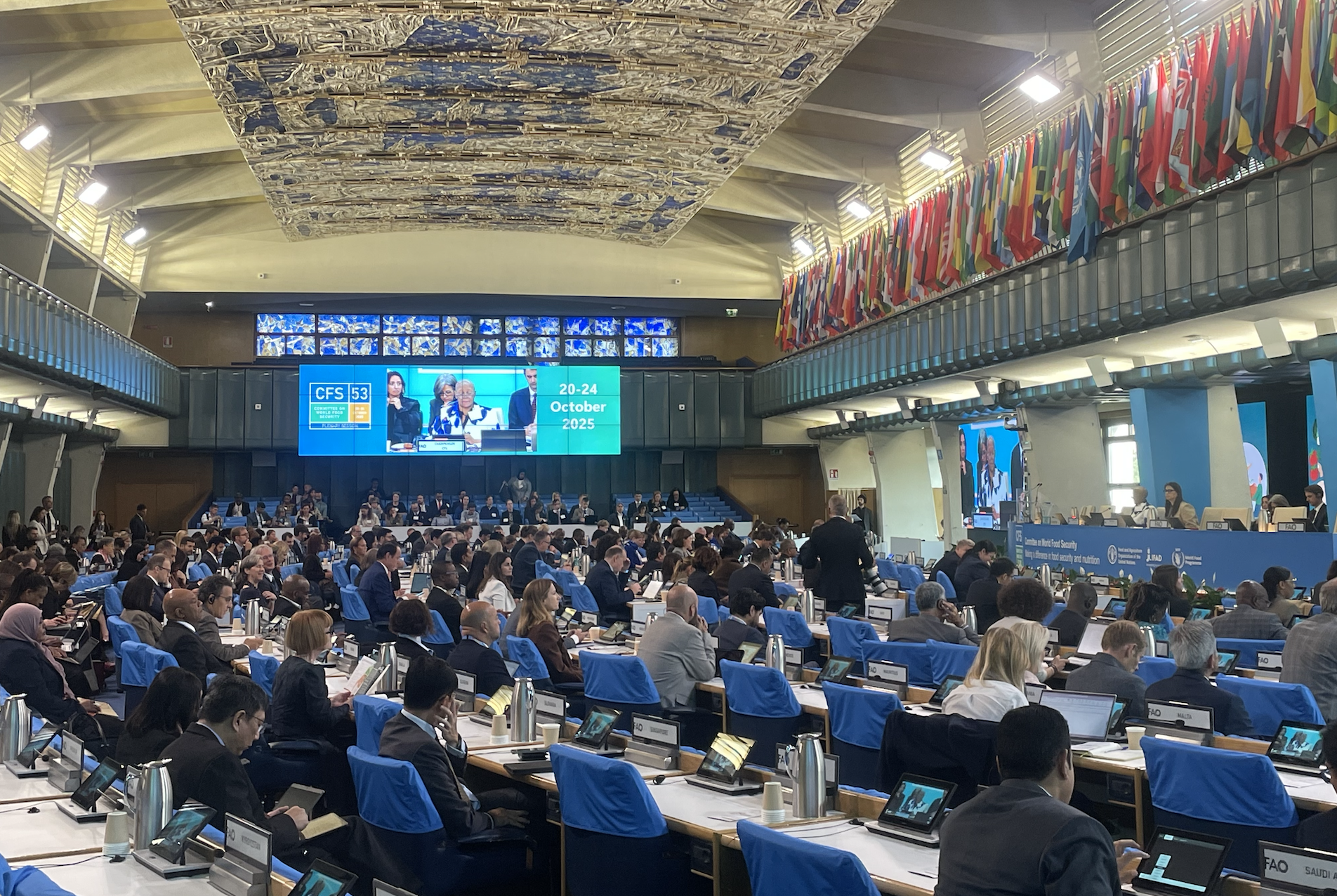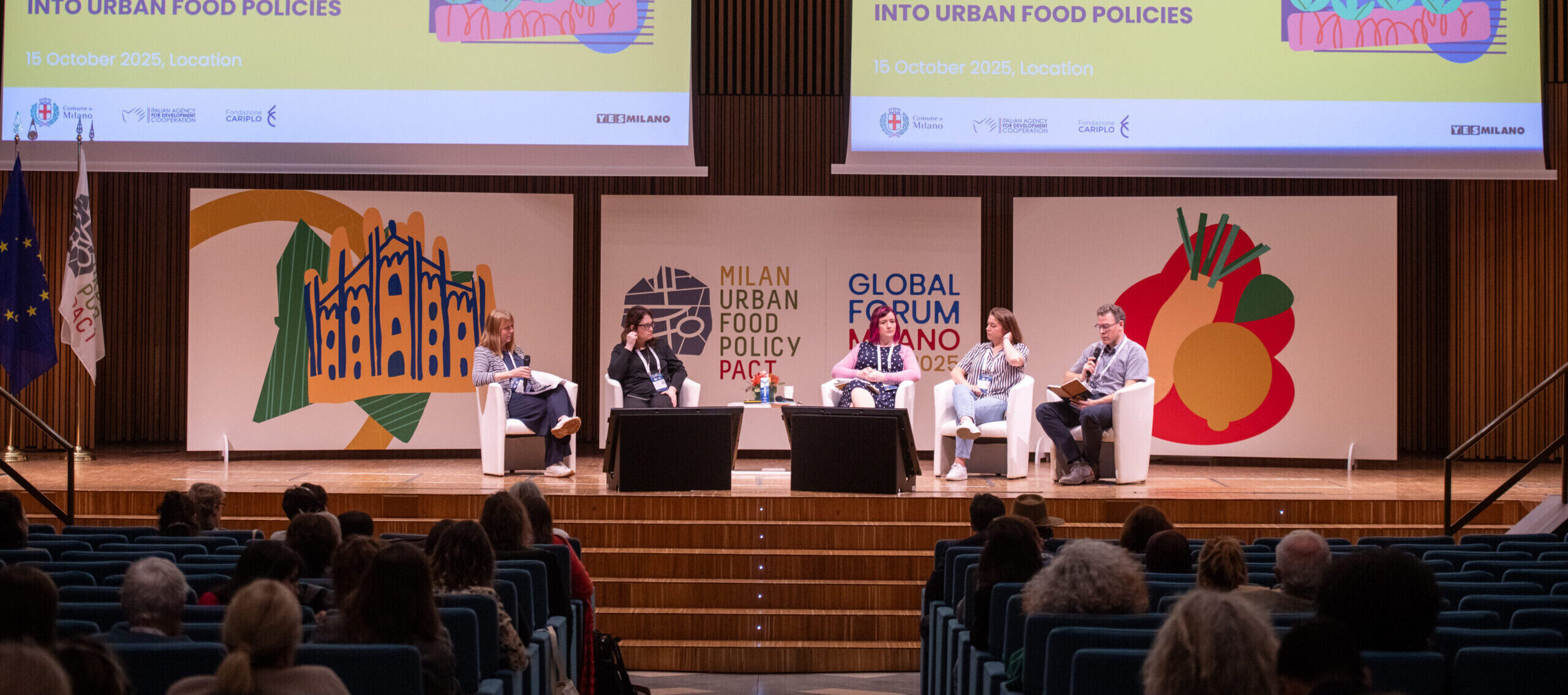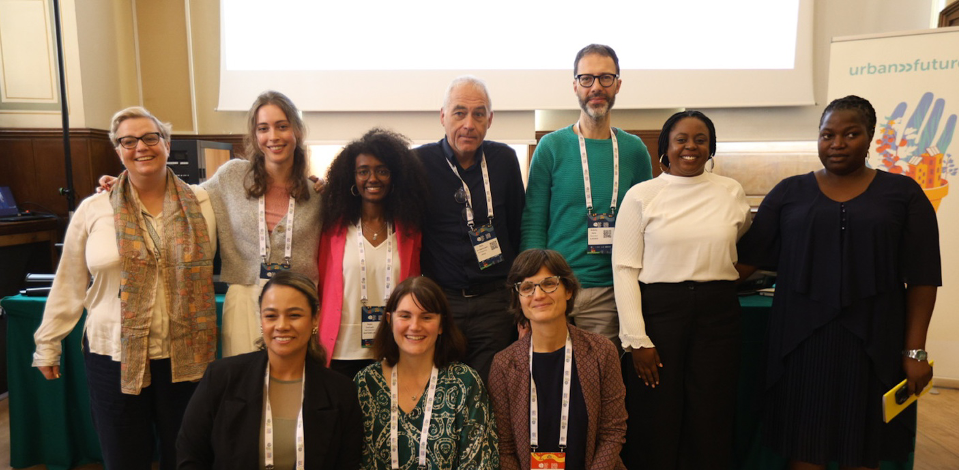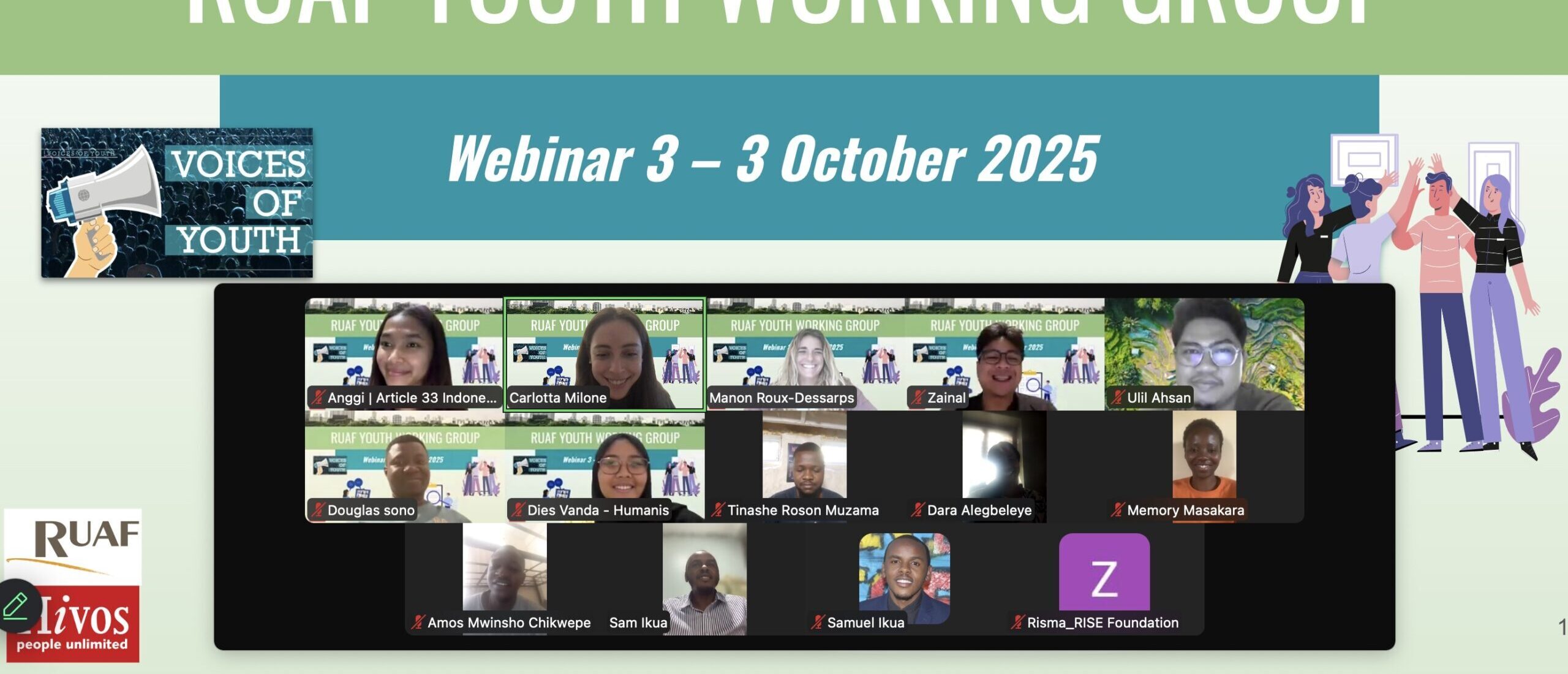There is an urgent need to unlock young people’s potential to forge sustainable, climate resilient food systems by enabling partipation in discussions and decision-making, according to youth delegates at the Voices from Cities event organized by RUAF and Hivos at World Urban Forum 12 in Cairo, Egypt.
The Voices from Cities event, entitled ‘Youth voices and innovations on climate resilient urban food and water systems’, took place on 6th November. It was co-organised by RUAF and Hivos under the Urban Futures programme, funded by Fondation Botnar, together with Global Infrastructure Basel (GiB), Dreamtown and Public Space Network.
The event provided a space for youth innovators from urban communities in the Global South to be heard – and the need was certainly evidenced. As one of 31 youth-centric events at WUF12, it attracted more than 100 attendees, with standing room only.
Delegates agreed that youth innovation is fundamental to forging more sustainable, climate resilient food systems, but too often young people do not have a seat at the decision-making table and lack the networks or skills to ensure their voices are heard in policy discussions.
When it comes to entrepreneurship, many youths lack access to financial support that is designed for older, more established people, as well as access to land and other resources.
Youth champions
The Urban Futures delegation consisted of five youth champions from Urban Futures partner organisations in programme cities: Nobukhosi Gumede from Greenhut in Bulawayo, Zimbawe; Albertina Luyanga from CUTS in Chongwe, Zambia; Bergita Gusti Lipu of World Resources Institute in West Manggari; Juan Pablo Cobo Salazar from EcoBarrios in Cali, Colombia; and Esteban Felipe Barriga Abril from Imaymana in Choco Andino, Ecuador.
During the Voices from Cities event, each of the champions presented their city, the challenges related to food systems and climate, their vision for a resilient and sustainable food system, and activities to date.
They were joined by Seranti Ninan from Bandung, Indonesia, who presented the journey of the Imah Maggot Bantaran black soldier fly venture to help with waste management, under GiB’s Safe and Sound Cities programme.
Frederick Okinda of Komb Green and Josephat Karomi of Kamkunji Environmental Conservation Champions, two youth champions from Nairobi, Kenya, shared their work under the Dreamtime Cool Waters project to regenerate the banks of the Nairobi River, including urban agriculture.
Local government dialogue
The youth had the opportunity to dialogue with representatives of three local governments: Mr Christopher Habeenzu, Mayor of Chongwe, Zambia; Rose Randall, Director of Food Systems at Nairobi City County, Kenya; and Daniel Rivera Velasquez, Secretary of Environment and Agricultural Development in Envigado, Antioquia, Colombia.
One important topic concerned the creation of opportunities for youth to participate in food system discussions, decision-making, and transparent budget allocation. Delegates agreed that there is a need to create new spaces for cooperation, and to ensure young people’s ideas to be incorporated into city systems.
The youth champions drew attention to difficulties in accessing funding and loan programmes, as well as accessing land, market opportunities, and support services. They called for more mechanisms specifically designed with supporting youth in mind, and were encouraged to form groups to access support and loans.
The champions also looked to governments to sponsor more opportunities for international exchange between youth involved in sustainable and climate resilient food systems.
Key take-aways
Manon Roux-Dessarps, UN Habitat intern and co-convenor of the RUAF Youth Working Group, outlined three commitments for cities to empower youth as agents of change:
- Amplifying youth voices, such as through sponsoring attendance at events, and establishing platforms for youth to contribute to city governance;
- Improving young people’s access to financial support and market opportunities, to enable them to forge sustainable livelihood while enhancing local economies and food systems; and
- Equipping young people with the skills and networks to navigate policy processes, through training, mentorship, and resources.
‘By putting these principles into action, we can create city ecosystems where youth are not only included but are integral to shaping resilience.’ – Manon Roux-Dessarps
Jess Halliday, RUAF Chief Executive, who introduced the event, highlighted the need for inter-generational alliance and support: ‘We in the older generation must facilitate youth participation and deliver on young people’s requests for support and mentorship. At the same time, we can learn a lot from the up-coming generation; we need to be open to what they can teach us.’
Following WUF12, Urban Futures delegates intend to share the energy, experiences and messages of WUF12 with their teams in their own cities. They also plan to local authorities to discuss helping youth to establish themselves, and to their wider communities to put in place mechanisms they heard about in Cairo.
